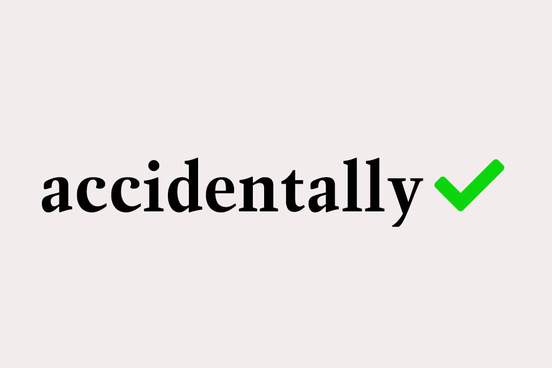
mostly not: accidently
Accidentally starts off just like accident, with one c to say /k/ and the other to say /s/. (Remember that c pretty much always says /s/ when it’s followed by an i, e, or y.)
It adds the al to get to accidental, and then adds ly in full to get to accidentally. (This is all clearly no accident.)
Caveat: we do have sufficient evidence of accidently in use to include it in our dictionaries. But it is far less common than accidentally, and it is frequently criticized as an error.

not: acheive, acheeve
If you made it through grade school, you likely learned the following spelling rule: ‘i’ before ‘e’ except after ‘c.’ There are numerous exceptions to that rule, but this word is not among them. Way to be an achiever, achieve.

definitely not: guage; mostly not: gage
Cars have lots of gauges: a fuel gauge so you know how far you can go, a temperature gauge so you know if your engine is overheating, maybe a tire gauge in the glove compartment. They’re all spelled gauge in general use. We have no good explanation for this word’s spelling: back when we spoke Middle English, gage, which follows reasonable spelling patterns along the lines of page and cage, was just as common as gauge. But by the late 19th century, gage had been relegated pretty much exclusively to technical contexts.
We’ll admit we’re also disappointed that gauge doesn’t follow the less reasonable, but still familiar, spelling pattern found in guard and guarantee.
No: instead gauge requires that we begin like gauze, gaunt, and gaudy but then pretend the u isn’t there at all. How gauche.

not: itinary, itinery
Itinerary comes from itinerant, meaning “traveling from place to place,” and traces back to a Latin word meaning “to journey.”
When you’re journeying you might have an itinerary, and you might also have trouble spelling the word that refers to it. Our trick is this: imagine loading up your trusty vehicular steed and put “it in (y)er (c)ar” (plus ‘y’): itinerary.
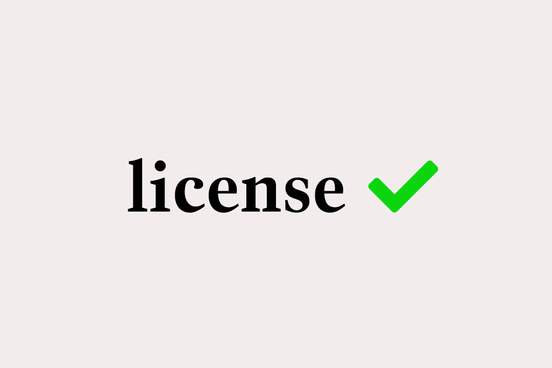
not: lisence; ok especially if you’re British: licence
In English as it’s used in the US, you get your driver’s license: the first /s/ sound is spelled with c, the second with s, which means it’s alphabetical.
In other places where English is spoken you’re more likely to get your “driving licence,” with only c’s for the /s/ sounds.
We’re not aware of any location where one gets a lisence.
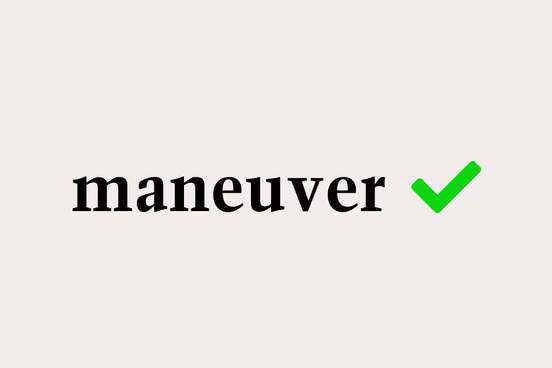
not: manoover, menoover, meneuver
Maneuver comes from the Medieval Latin phrase manu operare, meaning “to perform manual labor,” but it arrived in English by way of French, and we’re blaming them for the tricky spelling. The word’s direct French ancestor is manœuvre.
Our spelling with its eu saying /oo/ is bad enough, but outside the US you’re likely to see a spelling that reflects the French ancestry more faithfully: manoeuvre.
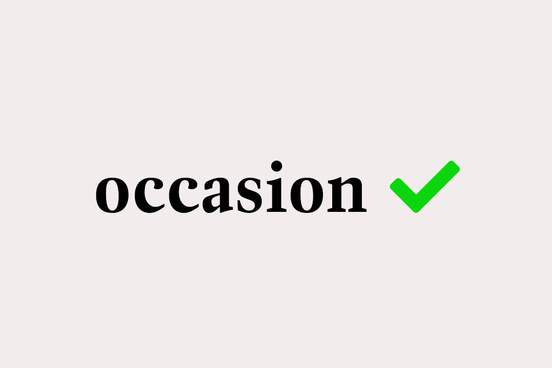
not: occassion, ocassion
Occasion is an occasion to use two c’s but only one s. If you feel the need to have two s’s, you’ll need an additional occasion.
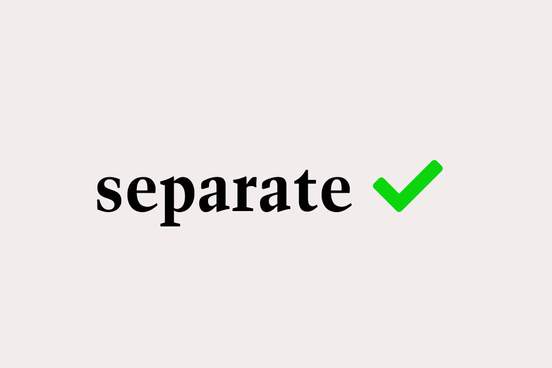
not: seperate, seprate, seperet
Whether used as an adjective—“keep the cat and dog separate”—or as a verb—“separate the cat and dog”—the word separate keeps its vowels separate.
The e’s are separated the most, as the second and final letters (we assume it’s because they bicker); the two a’s likely don't bicker as much, as they are separated only by a single r.
You can also remember that para is in the middle of it all, like a parachute ready to rescue whoever is being bothered by the e's noisy squabbling.
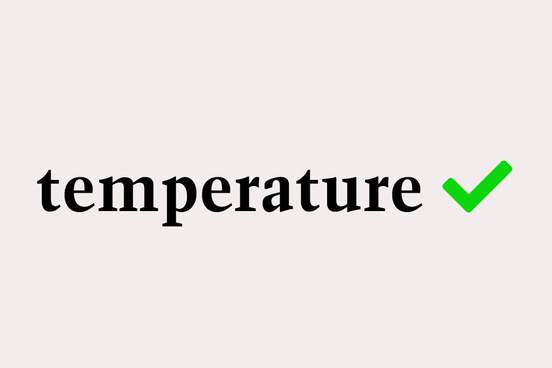
not: temperture, tempreture, temprature, temparature
Temperature begins with the word temper (and the two have the same Latin source, temperāre, meaning “to moderate,” among other things). The temper part is followed by a and the -ture suffix familiar in nature and future.
We like to think of the ature part like it’s a bit of a sneeze: a-TURE.

not: withold
Withhold is with + hold. If you withhold something from someone, you hold it with you and don’t give it to them at all. Don’t even give them an h. Especially not the second h, now that we think about it. You need two h’s to do it properly.






